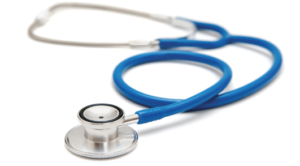Ghana, Japan, UNICEF celebrate successes of Universal Health Coverage
 Mr Kwaku Agyeman-Manu, the Minister of Health, has expressed appreciation to the Japanese Government, UNICEF and other development partners for their immense contribution to the country’s Universal Health Coverage (UHC).
Mr Kwaku Agyeman-Manu, the Minister of Health, has expressed appreciation to the Japanese Government, UNICEF and other development partners for their immense contribution to the country’s Universal Health Coverage (UHC).
He mentioned the support in strengthening Ghana’s health system, especially in the COVID-19 response through the provision of equipment and training to the Noguchi Memorial Institute for Medical Research (NMIMR), and enhancing Community-Based Health Planning and Services (CHPS) for improved service delivery.
The health sector had also benefitted from the Technical Support and Grant Aid from the Japanese Government, while UNICEF helped with improving Maternal, Neonatal, Child and Adolescent Health, he said.
Mr Agyeman-Manu, speaking at an event in Accra to celebrate the successes chalked by the health sector through these partnerships, mentioned the launch of the National Health Policy and improvement in the Water and Sanitation Hygiene (WASH) Strategy.
He said maternal and child health services were not greatly affected by the COVID-19 pandemic as a result of the earlier investments made, and that access to health services had been enhanced in several regions and districts through strengthening the CHPS compounds.
He called for exploring more opportunities to give every child in Ghana a fair chance in life.
Mr Agyeman-Manu said enhancing access to testing at the NMIMR helped with the fight against the COVID-19 pandemic adding that the recently installed COVID-19 testing and diagnostic machine at the Eastern Regional Hospital had improved service delivery.
The Government was also aware of the upcoming grant to provide ultra-cold chain equipment for vaccine storage to enhance vaccination, he said.
“This feat will not only improve our vaccine storage infrastructure but will also increase access and expand the scope and variety of vaccines that can be made available to Ghanaians as we race towards attaining a herd immunity,” he said.
Mr Agyeman–Manu said Ghana intended to vaccinate 20 million (60 per cent) of its population to achieve a herd immunity, but had so far immunised a little over 1.2 million Ghanaians against the COVID-19.
Mr Tsutomu Himeno, the Japanese Ambassador to Ghana, said his Government was happy with the collaboration in health and nutrition, maternal, and child health issues, and building a solid foundation for health service delivery.
He commended the UNICEF for its proven record of reliability as an encouragement to Japan to continue to entrust and invest its resources to support others.
Ms Anne-Claire Dufay, the UNICEF Country Representative, commended the Ministry of Health and Ghana Health Service for their leadership and commitment to fighting against the COVID-19 pandemic, despite the challenges.
She said since March 2020, more than 500,000 children and women had been immunised against preventable diseases, or benefited from pre and post-natal care, as well as providing services for survivors of gender-based violence.
Ms Dufay said more than 120,000 children were benefitting from micro nutrient powders to reduce anaemia, while 50 schools and 10 healthcare facilities now had water and sanitation equipment, all due to the strategic partnerships.
She reaffirmed the commitment of UNICEF to working closely with the governments of Ghana and Japan, and other partners, to boost progress towards Universal Health Coverage and the Sustainable Development Goals.
Source: GNA
